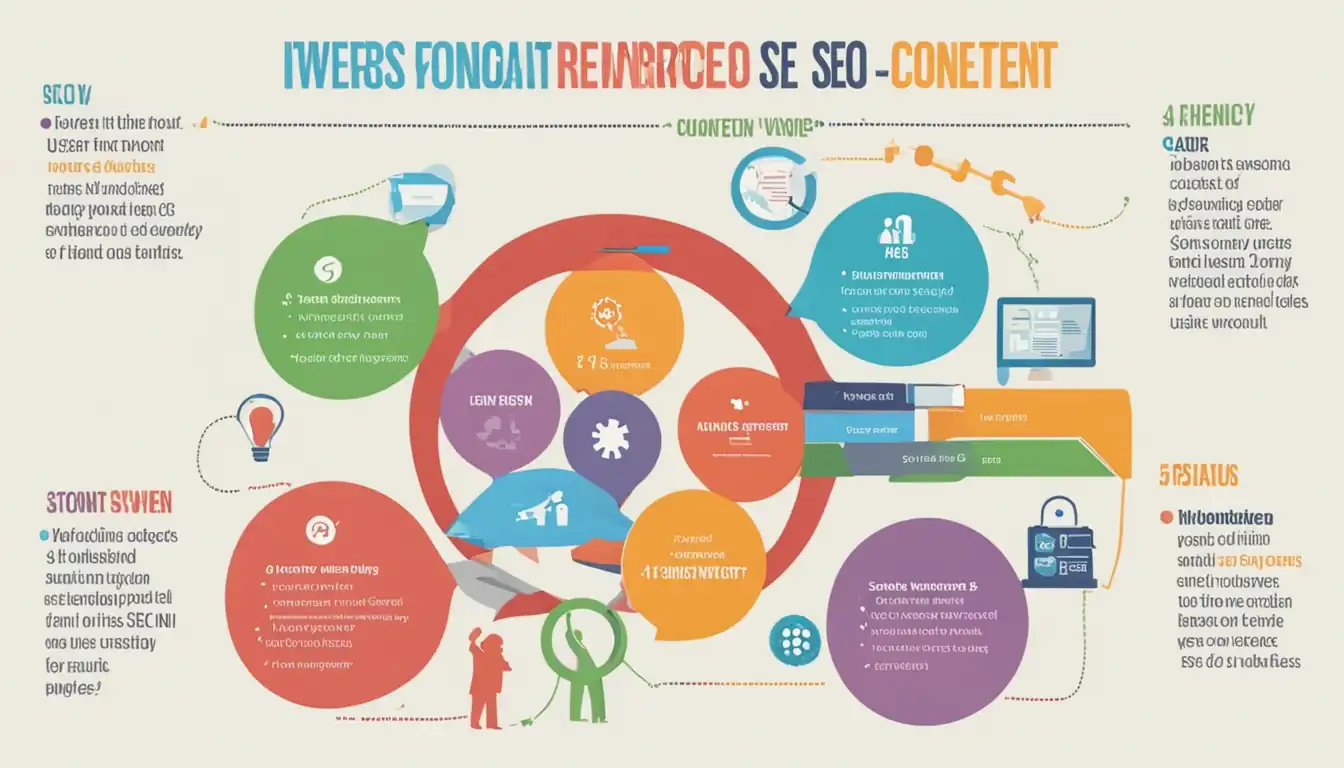Content Relevance for SEO: Elevating Your Website's Visibility

In the vast world of SEO, content relevance is the secret sauce that can take your website from the shadows to the spotlight. Understanding how to create content that resonates with both search engines and users is crucial for boosting your online visibility. Let's dive into the realm of content relevance and discover how it can elevate your website's SEO game.
Understanding Content Relevance and Its Impact on SEO

What is Content Relevance
Content relevance refers to the extent to which the content on a website aligns with the search queries of users. In other words, how well does the content on your website match what users are searching for? Search engines like Google prioritize websites that provide relevant and valuable content to users.
Why It Matters in Search Engine Optimization
Improved Visibility: When your website's content is relevant to user searches, search engines are more likely to rank your site higher in search results. This increased visibility can drive more organic traffic to your website.
Better User Experience: Relevant content not only helps with SEO but also enhances the overall user experience. Users are more likely to engage with and stay on a website that provides them with the information they are looking for.
Higher Conversion Rates: By providing relevant content, you are more likely to attract qualified leads who are interested in your products or services. This can lead to higher conversion rates and ultimately, increased revenue for your business.
Builds Authority: Consistently creating relevant content establishes your website as a trusted source of information within your industry. This can help build authority and credibility, further boosting your SEO efforts.
In conclusion, focusing on content relevance is crucial for improving your website's visibility in search engine results pages (SERPs) and driving organic traffic to your site. By understanding what users are searching for and creating high-quality, relevant content, you can elevate your SEO strategy and achieve long-term success online.
Key Elements That Determine Content Relevance
Semantic Richness and Keyword Integration
In the realm of SEO, semantic richness plays a crucial role in determining the relevance of your content. It involves using related keywords and phrases that are contextually relevant to your main topic. By incorporating these semantic variations into your content, you can signal to search engines that your website offers comprehensive information on a particular subject.
Key Points:
- Utilize keyword research tools to identify semantic variations of your main keywords.
- Integrate these related keywords naturally throughout your content to enhance its relevance.
- Avoid keyword stuffing, as it can negatively impact user experience and SEO performance.
The Role of User Engagement Metrics
User engagement metrics, such as bounce rate, time on page, and click-through rate, provide valuable insights into how users interact with your content. Search engines consider these metrics when evaluating the relevance and quality of a website's content. High levels of user engagement indicate that your content is resonating with visitors and meeting their informational needs.
Key Points:
- Monitor user engagement metrics regularly to gauge the effectiveness of your content.
- Analyze trends in user behavior to identify areas for improvement and optimization.
- Create compelling, informative content that encourages users to stay engaged and explore further.
[block quote] "User engagement metrics serve as indicators of how well your content aligns with the interests and needs of your target audience."
Strategies to Enhance Content Relevance

Crafting High-Quality, Targeted Content
Crafting high-quality, targeted content is essential for improving content relevance for SEO. This involves creating content that is not only well-written and informative but also tailored to meet the needs and interests of your target audience. By conducting thorough research on your audience's preferences and pain points, you can create content that resonates with them and keeps them engaged.
Using LSI Keywords Effectively
LSI (Latent Semantic Indexing) keywords play a crucial role in enhancing content relevance for SEO. These are keywords that are semantically related to your main keyword and help search engines understand the context of your content better. By strategically incorporating LSI keywords throughout your content, you can improve its relevance and increase its visibility in search engine results.
"LSI keywords provide search engines with additional context about the topic of your content, helping them better understand its relevance to user queries."
Tools and Techniques for Assessing Content Relevance

In order to elevate your website's visibility through content relevance, it is crucial to utilize the right tools and techniques for assessing the effectiveness of your content. By leveraging SEO platforms and analyzing competitor content, you can gain valuable insights that will inform your content strategy moving forward.
SEO Platforms and Their Metrics for Relevance
SEO platforms such as SEMrush, Ahrefs, and Moz offer a variety of metrics that can help you assess the relevance of your content. These metrics include keyword rankings, backlink profiles, organic traffic data, and more. By utilizing these tools, you can identify areas where your content may be lacking in relevance and make necessary adjustments to improve its performance.
Analyzing Competitor Content for Benchmarking
Analyzing competitor content is another valuable technique for assessing the relevance of your own content. By studying what your competitors are doing well (and not so well), you can gain insights into what resonates with your target audience and how you can differentiate your own content. This benchmarking process allows you to set goals for improving the relevance of your content and staying ahead of the competition.
Remember, staying up-to-date with the latest trends in SEO platforms and consistently analyzing competitor content will help you stay on top of your game when it comes to elevating your website's visibility through relevant content.
Real-World Examples of Successful Content Relevance in SEO
Case Studies from Various Industries
In the travel industry, websites like TripAdvisor have excelled in creating relevant content by providing comprehensive reviews, ratings, and recommendations for travelers. By consistently updating their content with user-generated reviews and helpful information, TripAdvisor has become a go-to resource for those planning their next trip.
Another example can be seen in the fashion industry with websites like ASOS. By curating trendy fashion pieces and offering styling tips, ASOS has established itself as a leader in the online retail space. Their blog posts, lookbooks, and product descriptions are all geared towards providing valuable information to their audience while incorporating relevant keywords to improve SEO visibility.
Lessons Learned from Top Performing Websites
Consistent Updates: One common thread among successful websites is the commitment to regularly updating their content. This not only keeps the website fresh and engaging for visitors but also signals to search engines that the site is active and relevant.
User-Centric Approach: Top performing websites prioritize creating content that is valuable and useful for their target audience. By understanding what their users are searching for and tailoring their content to meet those needs, these websites are able to drive organic traffic through improved search rankings.
Keyword Optimization: Incorporating relevant keywords strategically throughout your content is essential for improving SEO visibility. By conducting keyword research and identifying high-performing keywords in your industry, you can optimize your content to rank higher in search engine results pages.
By studying these real-world examples and learning from the strategies of top performing websites, you can elevate your own website's visibility through content relevance in SEO.
Understanding Content Relevance and Its Impact on SEO
